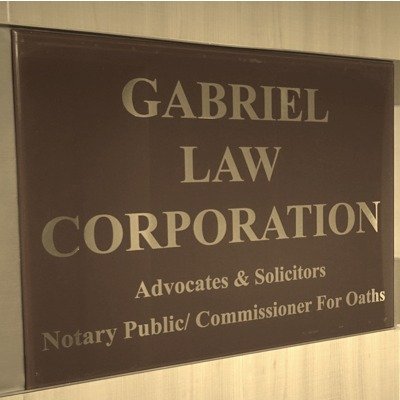Best Tax Lawyers in Raffles Place
Share your needs with us, get contacted by law firms.
Free. Takes 2 min.
List of the best lawyers in Raffles Place, Singapore
About Tax Law in Raffles Place, Singapore
Raffles Place is the financial hub of Singapore, and tax laws here play a crucial role in business operations and personal finance. Singapore's tax system is territorial; it imposes taxes on income earned or received in Singapore and on certain types of overseas income. The primary tax statutes in Singapore, including in Raffles Place, are the Income Tax Act and the Goods and Services Tax (GST) Act. These laws cover corporate tax, personal income tax, estate duty, GST, and more.
Why You May Need a Lawyer
Tax laws are complex, constantly changing, and their application can significantly impact both individuals and corporations. A tax lawyer's assistance is necessary to understand the complications of taxes, e.g., when dealing with tax controversies, planning tax strategies, setting up a business, or handling estate planning. They can also be critical in representing individuals or companies during tax audits or in negotiating with the tax authorities.
Local Laws Overview
The key aspects of local laws relevant to tax in Raffles Place coincide with Singapore's national legal landscape. The general corporate tax rate is 17%, but numerous tax exemptions and incentives for startups and growth companies may significantly lower effective tax rates. Personal income tax rates are progressive, ranging from 0% to 22%. The country also imposes a 7% GST on the import of goods and services. There is no capital gains tax or inheritance tax in Singapore.
Frequently Asked Questions
What kind of tax incentives are available for startups in Singapore?
Qualifying startups can avail a full tax exemption on the first S$100,000 of normal chargeable income for each of its first three consecutive years of assessment. A further 50% exemption is given on the next S$200,000 of normal chargeable income.
Do foreign-sourced income individuals/companies receive taxed in Singapore?
Generally, foreign-sourced income received in Singapore is taxable. However, depending on circumstances and conditions, it may be tax-exempt or eligible for a reduced tax rate.
Are there penalties for tax evasion in Singapore?
Yes, penalties for tax evasion can include heavy fines and imprisonment. Convicted individuals can face a penalty of up to four times the amount of tax evaded and/or imprisonment for up to three years.
What is the Goods and Services Tax (GST) in Singapore?
It’s a broad-based consumption tax levied on the import of goods (collected by Singapore Customs), and nearly all supplies of goods and services in Singapore. The current GST rate is 7%.
What are the primary tax authorities in Singapore?
The primary tax authority in Singapore is the Inland Revenue Authority of Singapore (IRAS).
Additional Resources
The main source of information on tax laws in Singapore is the Inland Revenue Authority of Singapore. Additionally, the Ministry of Finance and the Accounting and Corporate Regulatory Authority provide useful information and resources related to tax and corporate regulations. It is also beneficial to keep up with publications from reputable law firms specializing in tax laws.
Next Steps
If you need legal assistance in tax-related matters, consider getting in touch with a tax lawyer who specializes in Singapore's tax system. They can provide advice tailored to your specific circumstances and ensure that you are fully compliant with the current regulations. They may also assist you in identifying opportunities to minimize your tax liabilities within the legal framework.
Lawzana helps you find the best lawyers and law firms in Raffles Place through a curated and pre-screened list of qualified legal professionals. Our platform offers rankings and detailed profiles of attorneys and law firms, allowing you to compare based on practice areas, including Tax, experience, and client feedback.
Each profile includes a description of the firm's areas of practice, client reviews, team members and partners, year of establishment, spoken languages, office locations, contact information, social media presence, and any published articles or resources. Most firms on our platform speak English and are experienced in both local and international legal matters.
Get a quote from top-rated law firms in Raffles Place, Singapore — quickly, securely, and without unnecessary hassle.
Disclaimer:
The information provided on this page is for general informational purposes only and does not constitute legal advice. While we strive to ensure the accuracy and relevance of the content, legal information may change over time, and interpretations of the law can vary. You should always consult with a qualified legal professional for advice specific to your situation.
We disclaim all liability for actions taken or not taken based on the content of this page. If you believe any information is incorrect or outdated, please contact us, and we will review and update it where appropriate.








